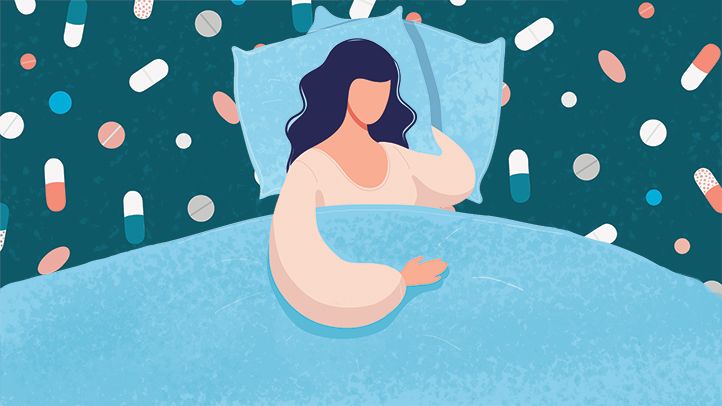
5 Common Sleep Aids That Could Harm More than Help Your Sleep
When stress, medical conditions, or lifestyle factors disrupt your sleep, it's tempting to try quick fixes. However, not all sleep remedies are effective, and some may even be harmful. Here are 5 common sleep aids to avoid or use with caution:

Woman in bed with sleeping pills
- Alcohol
- While it may help you fall asleep initially
- Disrupts sleep cycles and reduces restorative deep sleep
- Increases daytime sleepiness and accident risk
- Can worsen sleep apnea

Man browsing liquor store shelf
- Allergy Medicines (like Benadryl)
- Don't improve sleep quality
- Cause side effects like dry mouth and grogginess
- Can be dangerous for older adults
- Sleep Trackers
- Provide limited actionable information
- Cannot identify specific causes of poor sleep
- Don't offer solutions for improving sleep quality
- CBD
- Lacks sufficient research supporting sleep benefits
- Most products aren't FDA-approved
- Regular cannabis users often report worse sleep quality
- Prescription Sleep Medications
- Should only be used short-term (one month or less)
- Can cause dangerous side effects
- Risk of psychological dependency
- May become less effective over time
If sleep problems persist for several weeks and affect your daily life, consult a healthcare provider. Chronic insomnia can increase risks of various health conditions, including high blood pressure, heart disease, and diabetes. Focus on establishing good sleep habits before turning to sleep aids.
Remember: The best approach to better sleep usually involves addressing underlying causes and maintaining consistent sleep hygiene practices rather than relying on quick fixes or potentially harmful solutions.
Related Articles

The Science Behind Magnesium and Sleep: Benefits, Types, and Best Practices

